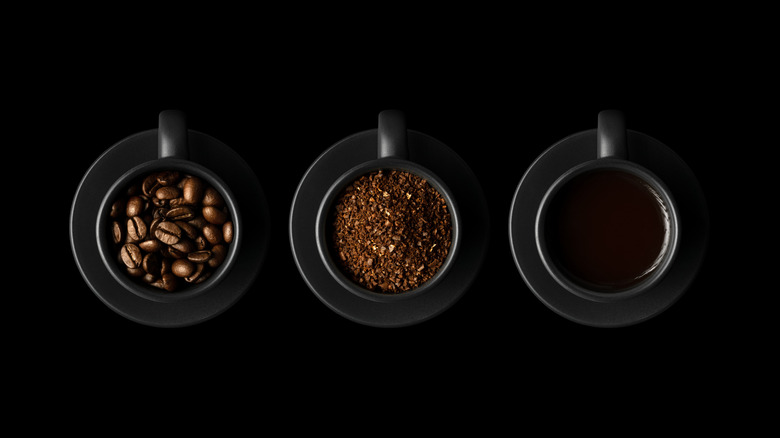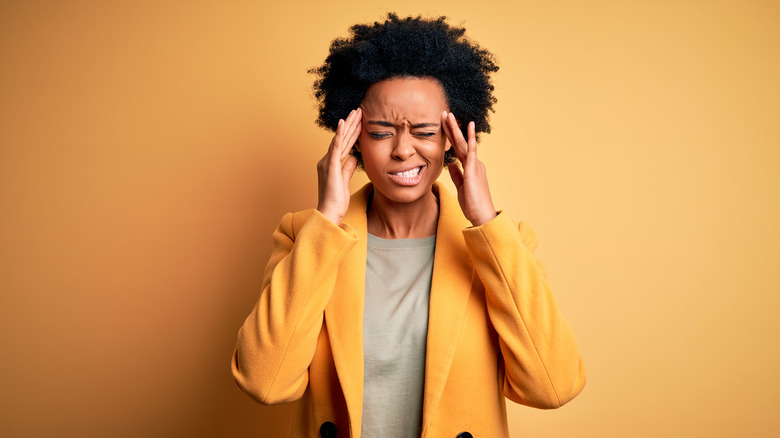How Coffee Could Help Relieve Migraine Pain
Anyone who suffers from migraines would grab at anything that offers a cure for the debilitating pain. There are many methods people use to find migraine relief, with varying degrees of effectiveness. One migraine relief tactic with tangible research behind it is also something you might do every day: drinking coffee.
Delish offers one theory for how this cure may (or may not) work: "Too much coffee may trigger migraines and make them worse, but research has found that small amounts of caffeine might help." As proof of coffee's potential benefits, Delish cites a paper from 2014, which notes caffeine can help migraines, especially when combined with analgesics like ibuprofen.
More interestingly, a scientific paper published in Nutrients in August 2020 noted that coffee still has a polarizing reputation when it comes to migraine relief. In an attempt to decisively end the debate, the paper's researchers synthesized the various papers published on the subject. They found caffeine was consistently shown to bring relief, especially when consumed with medicine. At the same time, overuse of caffeine or a sudden stop to one's caffeine intake could trigger a migraine. Their recommendation was to maintain an absolute limit of 200 milligrams for one's caffeine intake and to keep one's intake consistent to prevent withdrawal-induced migraines.
Why does caffeine help?
Seeing as scientific papers are still attempting to synthesize the information related to caffeine and migraines, we still have some time before any definitive conclusions are reached. However, general points are known.
The American Migraine Foundation wrote in 2020 that caffeine affects adenosine, a natural substance in the brain. When adenosine enters a vein it can cause a migraine and during a migraine the number of adenosine rises. Caffeine can block the receptors that interact with adenosine. However, the American Migraine Foundation admits that they "don't fully understand the mechanisms underlying the different effects of caffeine on the brain."
Surefire methods of combating migraines with caffeine are still lacking, especially since everyone consumes and reacts to caffeine differently. The Harvard Medical School states that listening to your body's reactions to caffeine is a generally sound principle. If you find drinking coffee helps, drink coffee. If you find that it inspires migraines, cut down on your coffee.

